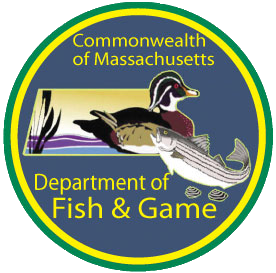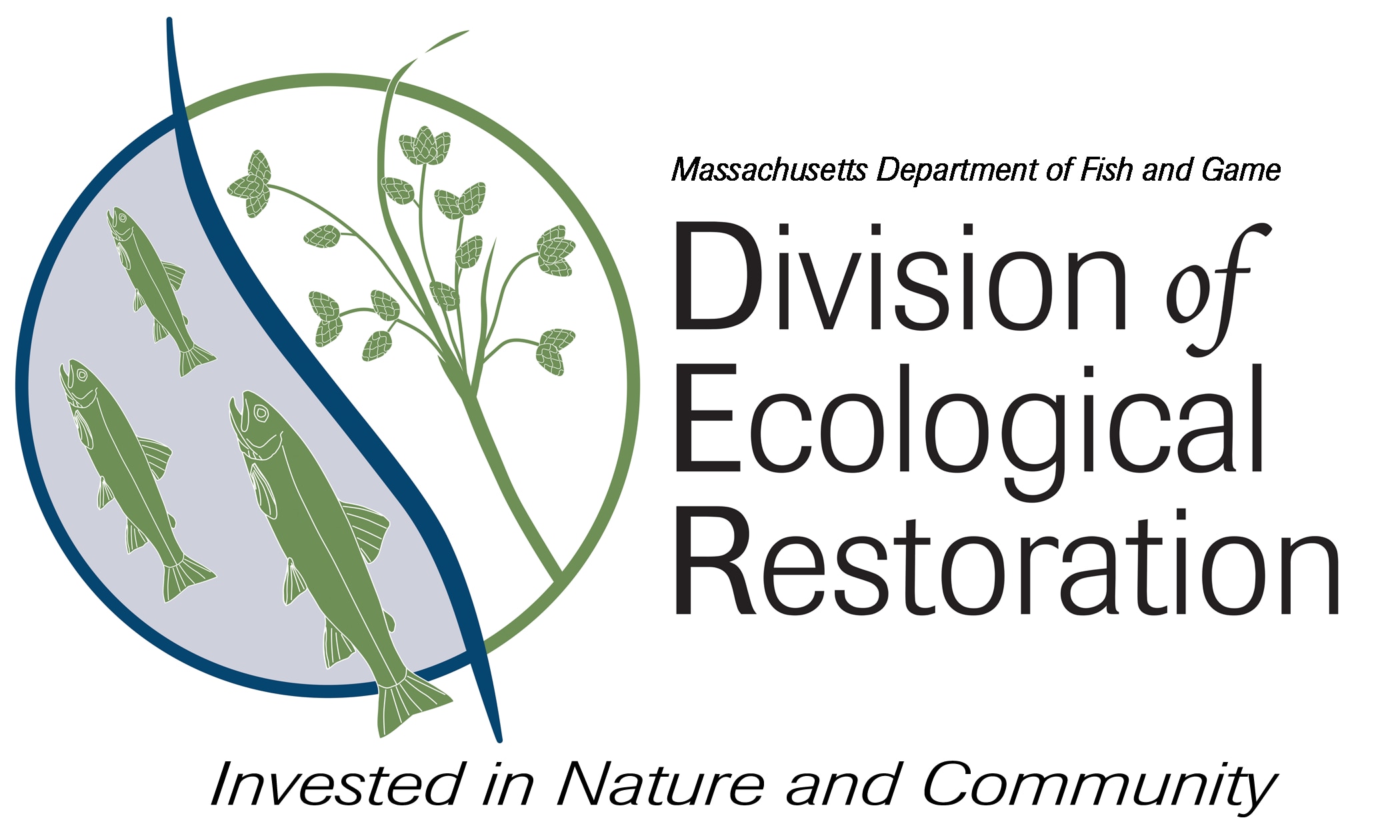- Executive Office of Energy and Environmental Affairs
- Department of Fish and Game
- Division of Ecological Restoration
Media Contact
Julia E. Hopkins, Communications Director
BOSTON — The Healey-Driscoll Administration today announced the award of $982,360 in grants to ecological restoration projects throughout Massachusetts by the Department of Fish and Game’s (DFG) Division of Ecological Restoration (DER). These projects, supported through three DER programs, will strengthen community resilience to climate change, improve climate-ready infrastructure and public safety, and restore crucial habitat and water quality, among other benefits. DER awarded $327,361 in funds through its Culvert Replacement Municipal Assistance (CRMA) Grant Program to eight municipalities, $555,000 in grant funds to five Priority Restoration Projects, and $100,000 to support three Restoration Partnerships through DER’s Regional Restoration Partnerships Program. These projects and partnerships will help Massachusetts prepare for the impacts of climate change, address public safety concerns, improve habitat and water quality, and restore important ecosystems throughout the state.
“Ecological restoration offers transformational benefits for both climate resilience and biodiversity. These priority actions will reduce flooding, improve water quality, and reconnect and restore critical habitats for fish and wildlife,” said DFG Commissioner Tom O’Shea. “As climate change brings increasing challenges, these projects and partnerships will support Massachusetts’ ResilientMass planning efforts to ensure the Commonwealth is prepared to withstand, adapt to, and rapidly recover from extreme weather events.”
“We are proud to support these powerful and diverse restoration projects through technical assistance, technical services, and funding,” said DER Director Beth Lambert. “Working together with many dedicated and knowledgeable partners, we will continue to drive restoration efforts forward and see the innumerable benefits of this work now and into the future.”
"Restoring and preserving our natural resources is an investment that is always worth making," said Senator John J. Cronin (D - Fitchburg). "This funding will make our ecosystems more resilient and give our communities the tools they need to ensure a sustainable future."
“Combatting climate change and protecting the habitats vital to our communities is critical and will take all of us working together,” said Senator Jacob Oliveira (D - Hampden, Hampshire and Worcester). “I want to thank the Healey-Driscoll administration, the Department of Fish and Game’s Division of Ecological Restoration, and the hard-working individuals in municipalities like the ones I represent, South Hadley and Belchertown, for seeking out these resources and continuing to collaborate and strive to find ways to reach our climate goals.”
The CRMA program supports culvert replacement projects that improve river health and road safety. Through a competitive process, the CRMA Grant Program helps municipalities replace undersized and deteriorating culverts with stream crossings that meet improved design standards. These improved crossings help people and nature adapt to climate change, restore natural river processes, improve passage for aquatic organisms, and increase climate readiness and public safety by reducing flood hazards. The following eight CRMA projects were awarded funding through DER’s Operational Budget:
Abbott Brook Culvert Replacement; Chester
Award: Town of Chester; $55,361
This award supports efforts to replace two culverts over Abbott Brook on Abbott Hill Road, including field data collection and preliminary design activities. Replacing these culverts will benefit important coldwater habitats, improve aquatic wildlife passage, stream connectivity, public access and safety, and reduce flood risks.
Bromley Road Culvert Replacement; Huntington
Award: Town of Huntington; $34,000
This award supports field data collection and design and permitting activities for two culvert replacement projects over a tributary to the East Branch of the Westfield River on Bromley Road. Replacing culverts with more resilient structures will provide public safety and public access benefits, improve important coldwater habitats and aquatic wildlife passage, reduce the risk of flooding and damage, and decrease maintenance needs.
Elmer Brook Culvert Replacement; South Hadley
Award: Town of South Hadley; $25,000
This award supports design, engineering, and permitting activities for a culvert replacement project over Elmer Brook on Pearl Street. The crossing has been identified as among the top 5% of crossings prioritized for replacement by the Massachusetts Wildlife Climate Action Tool, and replacing the culvert will reduce flooding and improve aquatic wildlife passage and habitat connectivity.
Hop Brook Culvert Replacement; Belchertown
Award: Town of Belchertown; $10,000
This award supports field data collection, engineering, and permitting activities for a culvert replacement on Hop Brook. Replacing this culvert with a structure that better meets the Massachusetts Stream Crossing Standards will improve stream connectivity, wildlife access, and reduce the risk of flooding.
Kettle Brook Culvert Replacement; Leicester
Award: Town of Leicester; $34,000
This award supports field data collection and design and permitting activities for a culvert replacement project over Kettle Brook at the intersection of MA-56 and Marshall Street. Replacing the structure will reduce flood risk, reconnect habitat, provide public access and safety benefits including for nearby Environmental Justice communities, and prevent additional scour and degradation of the current structure into Kettle Brook, which connects a series of reservoirs used to supply water to the City of Worcester.
Rock Meadow Brook Culvert Replacement; Uxbridge
Award: Town of Uxbridge; $34,000
This award supports field data collection, design and permitting, and some preliminary design and engineering work for a culvert replacement project over Rock Meadow Brook on Rock Meadow Road. Replacing this culvert will benefit important coldwater habitats, improve aquatic wildlife passage, benefit stream and habitat connectivity, and provide public access and safety benefits for the roadway and surrounding community.
Sucker Brook Culvert Replacements; Pepperell
Award: Town of Pepperell; $70,000
This award supports engineering and permitting activities for culvert replacements at the crossings of Sartelle and Sheffield Street. Replacing these culverts will improve stream connectivity, wildlife access, and river function on Sucker Brook.
Trapfall Brook and Tributary Culvert Replacement; Ashby
Award: Town of Ashby; $65,000
This award supports field data collection and design and permitting activities for two culvert replacement projects over Trapfall Brook and a tributary on Harris Road in Ashby. Replacing these culverts will improve aquatic wildlife passage, stream connectivity, public road access and safety, and decrease damage and maintenance needs caused by flooding and debris.
The Priority Projects Program is one of the vehicles by which DER pursues wetland, river, and streamflow restoration projects that present the greatest benefit to the Commonwealth ecologically, socially, and economically. Priority Projects help people and nature adapt to climate change and include the removal of aging, unsafe dams; restoration of freshwater wetlands in former cranberry farmlands; replacement and removal of undersized and degrading culverts; and restoration of tidal flow to degraded coastal habitats. To review a full list of active ecological restoration Priority Projects throughout the state, please visit DER’s Priority Projects Map webpage. The following five projects were awarded funds through DER’s Priority Projects Program via DER’s Capital Funds and Operational Budget:
Broad Meadow Brook Restoration; Worcester
Award: Massachusetts Audubon Society; $30,000 (DER Capital Funds)
This award supports assessment, design, and permitting for the Broad Meadow Brook Wetland and Stream Restoration project, which seeks to restore Broad Meadow Brook at the headwaters of the Blackstone River by addressing two barriers to water flow, including a buried culvert. This project will improve water flow and connectivity, wildlife habitat, water quality, floodwater storage, and the overall health of the ecosystem.
Cold Brook Restoration; Harwich
Award: Harwich Conservation Trust; $225,000 (DER Capital Funds)
This award supports construction for the Cold Brook Restoration Project, which is restoring a healthy, self-sustaining wetland and stream system within more than 50 acres of former commercial cranberry bog and over 4,000 feet of river channel along Cold Brook in Harwich. This work will improve coastal resilience, water quality, and habitat for many fish species.
Ipswich Mills Dam Removal; Ipswich
Award: Town of Ipswich; $25,000 (DER Capital Funds)
This award supports technical analyses to evaluate the feasibility of removing the Ipswich Mills Dam. Should this phase support removal, the removal of the dam will reconnect critical habitat for several fish species, eliminate a liability and maintenance burden for the Town of Ipswich, and improve water quality upstream of the dam.
Whitney Pond Dam Removal; Ashburnham
Award: Nashua River Watershed Association; $25,000 (DER Capital Funds)
This award supports the pre-construction phase of the Whitney Pond Dam Removal Project, which aims to remove the Whitney Pond Dam, a Significant Hazard dam in poor condition on the Whitman River. Removal of this dam will improve important coldwater habitats, eliminate maintenance costs and the risk of dam failure and related flooding, benefit surrounding communities including two environmental justice communities, and improve nutrient transport, water quality, and fish passage for many species including native Eastern brook trout.
Windswept Cranberry Bog Restoration; Nantucket
Award: Nantucket Conservation Foundation; $250,000 (DER Operational Funds)
This award supports pre-construction activities as well as the start of construction services for the Windswept Cranberry Bog Restoration. This project will restore 40 acres of former commercial cranberry bogs to healthy, self-sustaining wetlands and sandplain grasslands, and integrate the restored landscape within the publicly accessible 231-acre conservation property. The restored landscape will provide habitat for a wide variety of animal and plant species.
DER’s Regional Restoration Partnerships Program aims to increase the pace and scale of ecological restoration in Massachusetts by building the capacity of local and regional organizations that work collaboratively to advance restoration work. Partnerships through this program lead projects and activities to restore rivers and wetlands and help people and nature adapt to climate change. This program currently supports three Regional Restoration Partnerships, which were awarded funding from DER’s Operational Budget as outlined below:
Berkshire Clean, Cold, Connected Restoration Partnership; Berkshires
Award: Housatonic Valley Association; $33,500
This award will continue to build local and regional capacity through training opportunities, restoration collaboration, and planning while advancing locally driven, high-priority restoration projects such as culvert replacements and dam removals. This work will restore degraded aquatic ecosystems and increase climate resilience throughout the Hoosic, Housatonic, and Farmington River watersheds.
Buzzards Bay Watershed Restoration Partnership; Southeast Region
Award: Buzzards Bay Coalition; $45,000
This award will advance early stages of high-priority restoration projects, such as river and stream barrier removal, salt marsh restoration, and wetland restoration on retiring cranberry farms throughout the Buzzards Bay region in Southeast Massachusetts. This Partnership is also focused on supporting local stakeholders, towns, and land trusts pursuing ecological and climate resilience planning and restoration.
Merrimack Restoration Partnership; North Central & Northeast Regions
Award: Merrimack River Watershed Council; $21,500
This award will support the early stages of locally driven, high priority restoration project implementation, such as culvert replacements and dam removals, to restore degraded aquatic ecosystems and increase climate resilience within the Northeast and North Central regions of the state. The Partnership also supports urban stream revitalization and outreach within the environmental justice communities of Lowell and Lawrence, including increasing connection to local rivers for all ages.
The mission of the Division of Ecological Restoration is to restore and protect the Commonwealth’s rivers, wetlands, and watersheds for the benefit of people and the environment. The Department of Fish and Game is responsible for promoting the conservation and enjoyment of the Commonwealth's natural resources. DFG carries out this mission through land protection and wildlife habitat management, management of inland and marine fish and wildlife species, and ecological restoration of fresh water, salt water, and terrestrial habitats. DFG promotes enjoyment of the Massachusetts environment through outdoor skills workshops, fishing festivals and other educational programs, and by enhancing access to the Commonwealth's rivers, lakes, and coastal waters.
###

